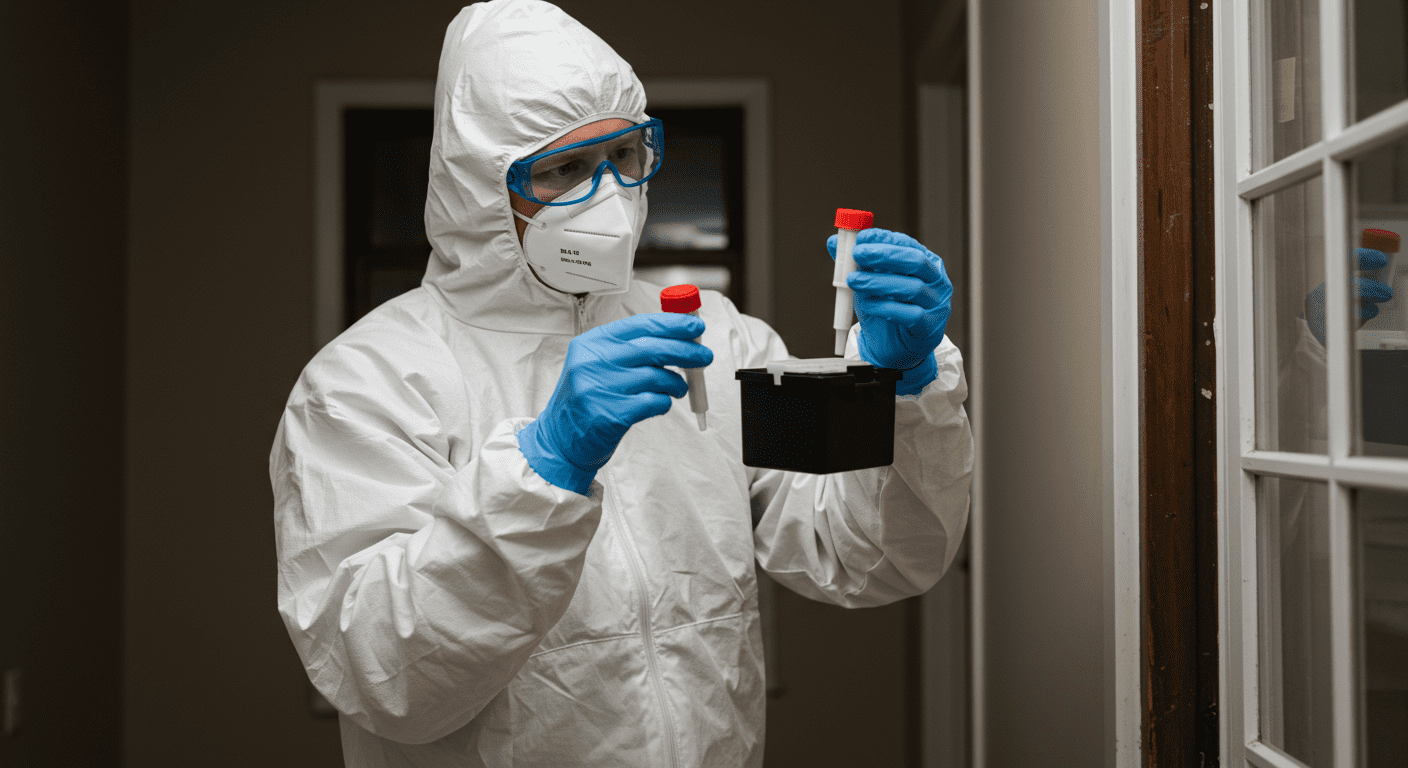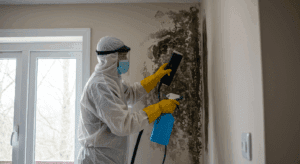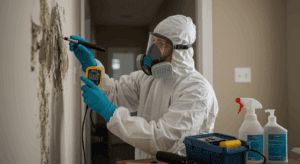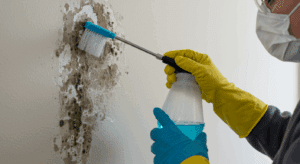Mold is a common household issue that can pose significant health risks and structural damage if left unchecked. Testing your home for mold is a crucial step in maintaining a safe and healthy living environment. This guide will walk you through the risks associated with mold, methods for testing, the testing process, and the importance of professional mold remediation.
Understanding Mold and Its Risks
Health Impacts of Mold Exposure
Mold exposure can lead to a variety of health problems, particularly for individuals with allergies, asthma, or weakened immune systems. Common symptoms include respiratory issues, skin irritation, and sinus congestion. Prolonged exposure may even result in more severe conditions like chronic bronchitis or fungal infections. Identifying and addressing mold early can prevent these health complications and ensure a safer home environment.
Common Signs of Mold Presence
Detecting mold in its early stages can save you from costly repairs and health risks. Look for visible signs such as discoloration on walls, ceilings, or floors. A musty odor is another common indicator of mold growth. Additionally, water stains or areas with excessive moisture, such as bathrooms and basements, are prime locations for mold to thrive. Regular inspections can help you spot these signs before they escalate.
Methods for Testing Your Home for Mold
Visual Inspection Techniques
A thorough visual inspection is the first step in identifying mold. Pay close attention to areas prone to moisture, such as under sinks, around windows, and in basements. Use a flashlight to examine dark corners and hidden spaces. While visual inspections are helpful, they may not detect mold spores that are invisible to the naked eye.
Types of Mold Testing: Air, Surface, and Bulk Tests
- Air Testing: Measures the concentration of mold spores in the air, providing insights into indoor air quality.
- Surface Testing: Involves swabbing or tape-lifting samples from surfaces to identify mold types.
- Bulk Testing: Collects materials like drywall or carpet for laboratory analysis to determine mold presence and severity.
Each method has its advantages and limitations, so combining them often yields the most accurate results.
The Mold Testing Process
What to Expect During a Mold Inspection
A professional mold inspection typically begins with a detailed visual assessment of your home. Inspectors use specialized tools like moisture meters and thermal imaging cameras to detect hidden mold. They may also collect air and surface samples for laboratory analysis. This comprehensive approach ensures no area is overlooked.
Analyzing Test Results and Next Steps
Once the samples are analyzed, you’ll receive a detailed report outlining the types and concentrations of mold present. If mold is detected, the next steps may include identifying the source of moisture and developing a remediation plan. Addressing the root cause is essential to prevent future mold growth.
Importance of Professional Mold Testing and Remediation
When to Hire a Professional
While DIY mold testing kits are available, they often lack the accuracy and reliability of professional services. Hiring a certified mold inspector is recommended if you notice persistent mold signs, experience unexplained health issues, or suspect hidden mold. Professionals have the expertise and equipment to provide accurate assessments and effective solutions.
Steps for Effective Mold Remediation
Professional mold remediation involves several steps:
- Containment: Isolating the affected area to prevent mold spores from spreading.
- Removal: Safely removing mold-infested materials.
- Cleaning: Using specialized cleaning agents to eliminate remaining mold spores.
- Prevention: Addressing moisture issues and improving ventilation to prevent recurrence.
Professional services ensure thorough remediation, safeguarding your home and health.
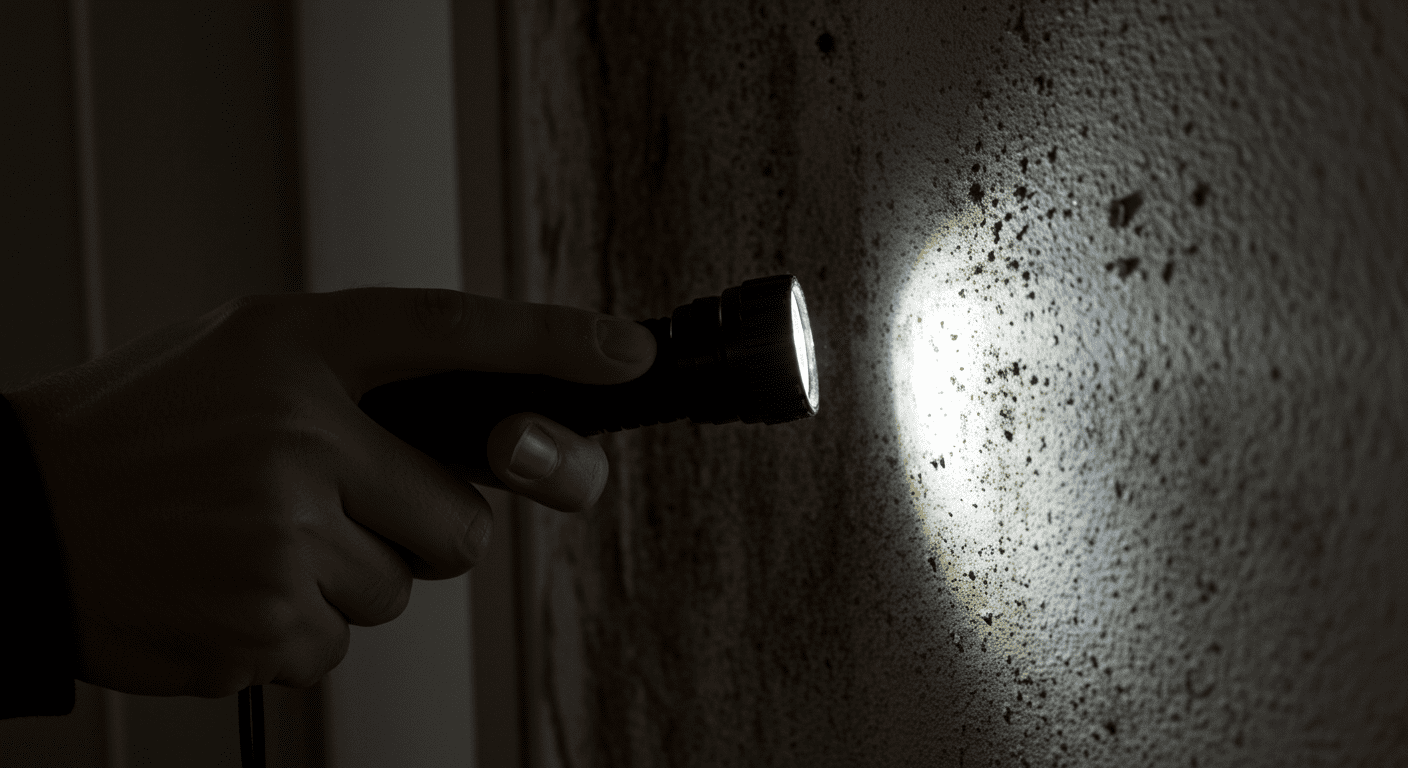
Testing your home for mold is an essential part of maintaining a safe and healthy living environment. By understanding the risks, employing effective testing methods, and seeking professional help when needed, you can protect your home and loved ones from the dangers of mold. For expert mold inspection and remediation services, explore Comprehensive Mold Inspection and Remediation Services in Winter Garden, FL or Expert Mold Removal Services in Ormond Beach, FL.

